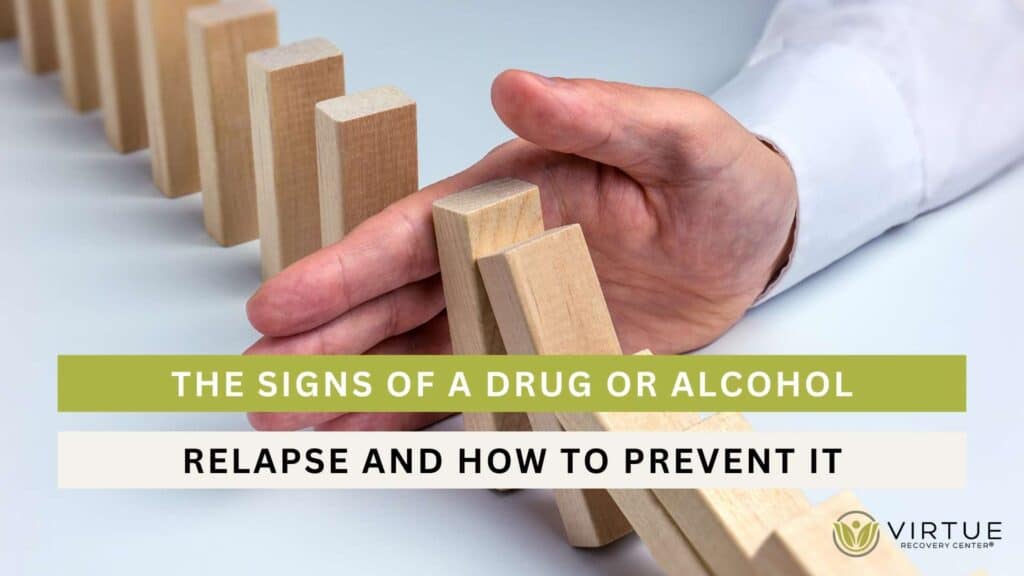Key Takeaways
- Understanding the warning signs of relapse is crucial for maintaining recovery.
- Implementing effective prevention strategies can significantly reduce the risk of relapse.
- Support systems and professional help are vital components of a successful recovery plan.
Introduction
The process of getting out of addiction is hard and full of obstacles, with relapse being a real threat. The identification of the warning signs and the application of preventive measures are essential for both people in recovery and their families. This article will discuss the main signs of relapse and give some useful tips to prevent it, thus helping people resist temptation and keep on the way to recovery.Understanding Relapse
Relapse is not a single event but rather a process, with the warning signs usually appearing days or weeks before. It is necessary to keep in mind that relapse is a normal part of the recovery process and does not mean defeat. On the contrary, it signals a new and better recovery plan.Common Signs of Relapse
The warning signs of relapse can be categorized into emotional, mental, and physical stages: The warning signs of relapse can be categorized into emotional, mental, and physical stages:- Emotional Signs may not be the direct cause of substance use, but they can create a situation for a relapse. These are the symptoms of anxiety, mood swings, not attending meetings, poor sleep, and isolating oneself.
- Mental Signs are the internal fights that a person has with himself or herself about substance use. The factors that can trigger a relapse are, for example, thinking about the people and places connected with the past use of drugs or alcohol, glamorizing it in your mind, lying to yourself that you will not do it again but planning how to do so secretly.
- Physical Signs are the actual actions that one takes to start using again, for example, contacting old friends who use, visiting places where one used to use, and finally using the substance.
Strategies to Prevent Relapse
However, being relapse-ready would not imply the final stop of regression. Though wealth can be a good sign of success, it cannot be considered a significant measure of success when individuals suffer from mental or physical health problems. Here are some strategies that can help:- Develop a Solid Recovery Plan: With the help of a counselor or a support group, you should develop a recovery plan with regular follow-ups. Modifying the plan whenever necessary is OK.
- Build a Supportive Network: The recovery process is more successful when your social relationships are good. In your network, you can mention the people who are very much on your side. Community groups like Alcoholics or Narcotics Anonymous can also be your support network.
- Learn to Manage Triggers: Find out what makes you prune with anger and devise strategies to help you feel better even when your favorite TV show gets canceled, or you are in a stressful situation, such as when you are stuck in a traffic jam.
- Maintain Healthy Routines: Continuously practicing meditation daily may be critical in handling stress, and there may be a period when one returns to the same state. It is advisable to follow the healthy living model, which involves a good diet, physical training, and adequate sleep, which should be included in your daily routine.
- Practice Mindfulness and Stress Management: Using examples of mindfulness, meditation, and yoga practice as a few of the approaches have been helpful to mental health, and it also reduces anxiety and stress before an attack.
What to Do If Relapse Occurs
If you do relapse, it does not have to be the end of your recovery pathway at all. To a lot of people, a relapse may be a part of the process that helps an individual in making their recovery stronger. Here are some steps to take:- Admit to the Relapse: To get over your relapse, you must take the first steps to get back on track. Unmask it completely and own what happened.
- Get Help Right Away: You must immediately call your advisor, support group, or treatment center for help with what to do after a relapse.
- Understand What Happened: Focus on the triggers that pushed you towards relapse, such as an event, an emotion, or a situation.
- Update Your Plan: Use your relapse plan as a guide to modify and adjust as you learn from the experience. Invent new coping techniques or change your plan.
How Can Understanding the Kindling Effect Help in Recognizing Signs of a Relapse?
Understanding the kindling effect in addiction reveals how repeated substance use can heighten vulnerability to relapse. This phenomenon highlights that each episode of use makes future relapses more likely and more severe. By recognizing early warning signs, individuals can seek help promptly, preventing a potential downward spiral into addiction.








